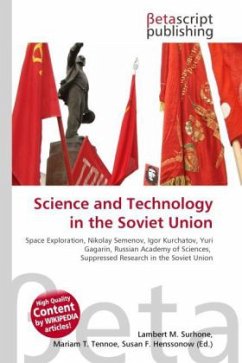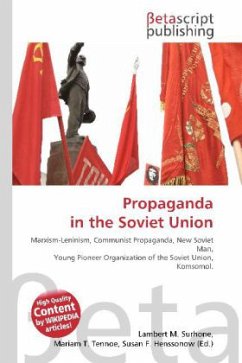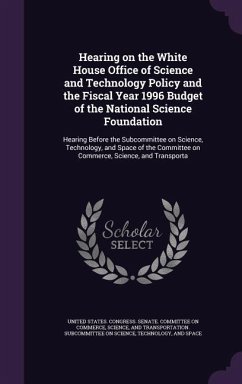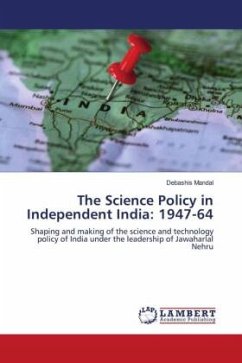
Science and Technology in the Soviet Union
Versandkostenfrei!
Versandfertig in 6-10 Tagen
23,99 €
inkl. MwSt.

PAYBACK Punkte
12 °P sammeln!
High Quality Content by WIKIPEDIA articles! In the Soviet Union, science and technology served as an important part of national politics, practices, and identity. From the time of Lenin until the dissolution of the USSR in the early 1990s, both science and technology were intimately linked to the ideology and practical functioning of the Soviet state, and were pursued along paths both similar and distinct from models in other countries. Many great scientists, who worked in Imperial Russia (like, e.g. Konstantin Tsiolkovsky), continued to work in the USSR and gave birth to Soviet science. Marke...
High Quality Content by WIKIPEDIA articles! In the Soviet Union, science and technology served as an important part of national politics, practices, and identity. From the time of Lenin until the dissolution of the USSR in the early 1990s, both science and technology were intimately linked to the ideology and practical functioning of the Soviet state, and were pursued along paths both similar and distinct from models in other countries. Many great scientists, who worked in Imperial Russia (like, e.g. Konstantin Tsiolkovsky), continued to work in the USSR and gave birth to Soviet science. Marked by a highly developed pure science and innovation at the theoretical level, interpretation and application fell short. Biology, chemistry, materials science, mathematics, and physics, were fields in which Soviet citizens have excelled. Science was emphasized at all levels of education, and very large numbers of engineers graduated every year.












